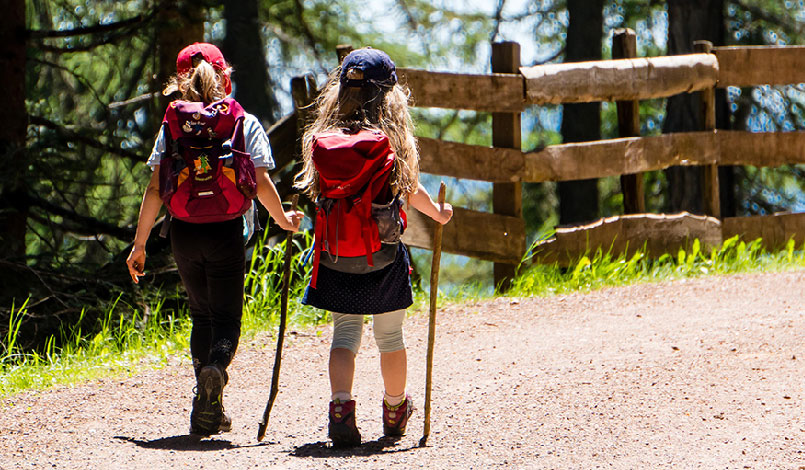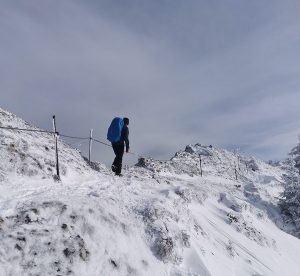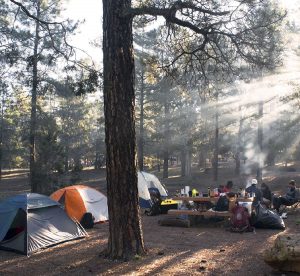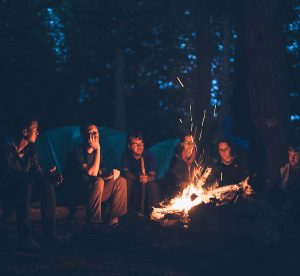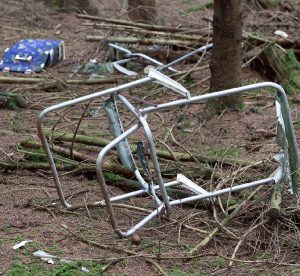THE FOUR PRINCIPLES FOR NST
THE NST CODEX

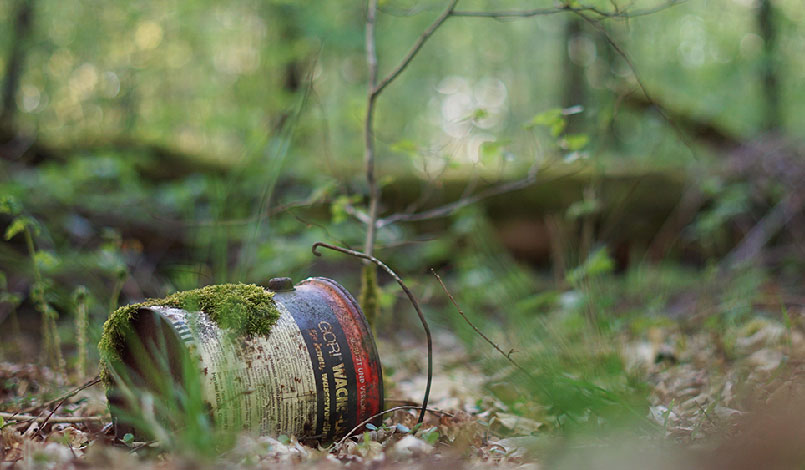
The NORTH SOUTH TRAIL CODEX
BE A RESPONSIBLE HIKER.
More and more people are rediscovering hiking and the longing to get back to nature. This basically very positive development for people, but unfortunately often has negative effects on our environment.
Especially we in Germany, who no longer have any real wilderness, should treat our nature very responsibly. Here we present the 4 most important behaviours for a Thruhike of the North South Trail. Every NST hiker should adhere to this codex:
RULE NO1. PLANNING AND PREPARATION
Good preparation not only protects you, but also your environment! This may sound banal at first, but this point is particularly often underestimated. As the saying goes, ``If you fail at planning, you plan to fail!`` Before planning such a long long-distance hike as the NST, you should ask yourself the following questions:
✅ Can I correctly assess the difficulty of the trail?
✅ Is the North-South Trail suitable for my abilities and physical condition? Before you go over your limit, be sure you know it!
✅ Are you prepared for surprising weather changes? On a trek lasting several months you will get to know all kinds of weather. Have you checked the weather forecast and brought suitable clothing and equipment?
✅ Do you know which grazing and wild animals live in Germany and how you should behave when encountering them?
✅ Are there special regulations in the individual federal states? Nature reserves, wild camping, bivouacking, fires?
✅ Do I really have everything I need with me? Only take the absolutely necessary items with you on your tour, completely do without luxury and frills. You will thank this rule every 10 kilometres, I promise!
RULE NO.2 PROPER CAMPING OR SLEEPING IN NATURE.
We don't need to beat around the bush on this important point. Wild camping is largely not allowed in Germany. But we also have to face the reality that there is a lot of wild camping in Germany, whether the authorities want it or not. With our code of conduct, we want to keep the impact on nature as low as possible, so please adhere to the following rules:
✅ If a legal overnight accommodation is within reach and possible, use it. It doesn’t matter if it’s a trekking site, a campsite, a barbecue hut or a private property (with the owner’s permission, of course).
✅ If possible, never camp, bivouac or camp in a nature reserve; this helps nature and your wallet if you get caught.
✅ Try to stay overnight only in shelters. Bivouacking, i.e. spending the night without a tent, is a legal grey area in Germany and is not prohibited outside protected areas. Also, avoid leaving traces in nature by searching cross-country in the forest for a campsite. In most federal states, spending the night in shelters is now tolerated.
✅ Tent on surfaces that are as insensitive as possible, such as stone, scree, dry meadows or snow. Can you find existing camping sites? Then use them and don’t create new ones.
✅ Set up your camp about 110 yd away from bodies of water so that you do not disturb the animals and plants in the area and no rubbish gets into the water. Riparian areas should be particularly protected, as the ecosystem here is very vulnerable to foreign influences.
RULE NO.3 BE THE PROTECTOR OF NATURE, NOT ITS DESTROYER
What do we use to leave traces in nature and how can we simply avoid them? It is mainly things that we bring into nature from the outside and things that we take out of nature. Avoid damage that we cause in nature through our behaviour:
✅ It is best to move only on the designated hiking trails, they have been laid out for you.
✅ VTry to avoid noise and very loud sounds. You are surrounded by nature, listen and marvel, after all it is about experiencing nature.
✅ Respect wildlife and do not disturb it. Do not feed or chase them, and certainly do not pet them. Always make sure you don’t leave food scraps and store your provisions out of reach. Never forget that this is the animals’ home, their living room. You are only a guest here, so treat yourself as such.
✅ VAvoid campfires! No question, after a long day of hiking, a romantic campfire is the nicest thing ever. However, a fire carries very great risks that even experienced long-distance hikers can misjudge. Factors such as wind strength and dryness of the vegetation are often not taken into account and as a result, devastating forest fires occur every year. Use designated fireplaces, fire bowls or barbecue areas, but never leave them burning unattended. But remember, even on these legal fireplaces, fires may be temporarily banned if, for example, it is particularly dry. The most important rule for fires: “SWITCH ON YOUR BRAIN”
RULE NO.4 BE CLEAN AND CAREFUL
``Be hiker trash not trashy hikers`` says it all. Don't behave like the last person in nature, but be prudent, sensitive and respectful. In this way, everyone can do their part to ensure that the natural landscapes in which we like to move and spend time remain natural. The following rules should be self-evident for everyone:
✅ Nature is not a rubbish bin, rubbish and waste simply have no place in nature. Full stop. Check your campsite or rest area before you leave to make sure you have collected all the rubbish you can. As an NST Thruhiker, it is a basic attitude to take back everything you pack out.
✅ Nature is not your bathroom or toilet. In Germany in particular, it seems to be common practice to use the space behind a refuge as a toilet. This is not only very disgusting for the other hikers, but above all harms the environment. Human waste should be buried in 0,3 yd deep holes, about 220 yd away from water bodies. Never bury tempo tissues or other perfumed substances that are difficult to break down. Conventional toilet paper is best. This distance should also be kept when washing the body or dishes. Please do not use conventional detergents or soaps, but products that are biodegradable. But even for these products, use as little as possible.
✅ Nature is not a flower shop or a souvenir shop, just leave everything as you found it. It’s about preserving what is and what was. Keep your hands off cultural or historical structures and buildings and just leave plants where they are.
These four principles of the NST Codex should be internalised before every thruhike, but they also apply in everyday life. Everyone who enjoys being in nature should sooner or later come to the realisation that we must protect and preserve it with all available means. In this way, we can also make this unique experience of a thruhike possible for future generations. – This is the way!
